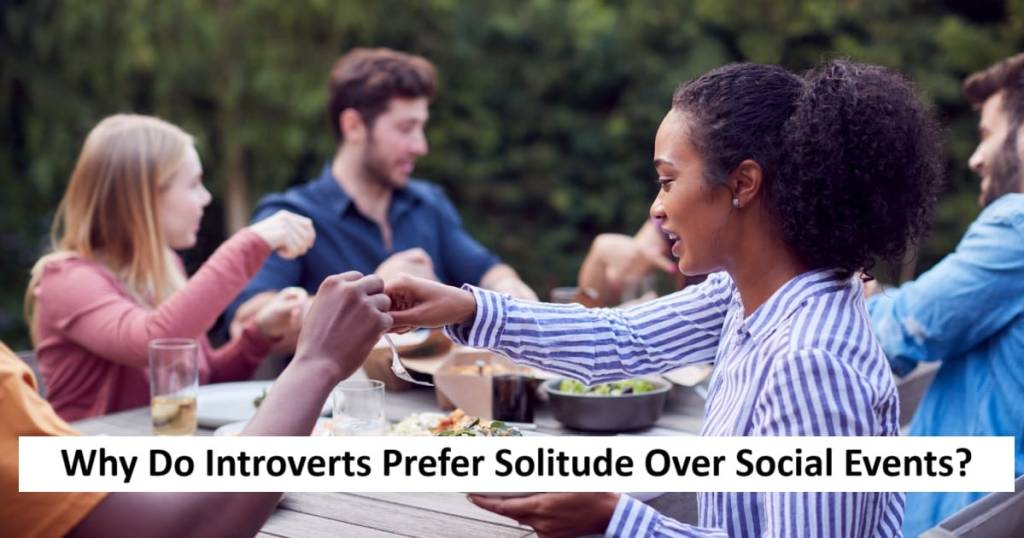Introverts often get misunderstood in a culture that praises constant socializing and networking. Many Americans assume spending time alone equals loneliness, but psychology shows otherwise. In fact, introverts recharge in solitude, finding joy in activities that allow them to be fully present with themselves. For the average U.S. reader who might wonder why their introverted friend skips parties or chooses quiet hobbies, here are eight psychologically backed activities introverts genuinely enjoy on their own.
Table of Contents

Why Do Introverts Prefer Solitude Over Social Events?
Psychologists explain that introverts’ brains respond differently to dopamine compared to extroverts. While an extrovert feels energized in a crowd, introverts feel overstimulated and drained. This doesn’t mean they dislike people; it means they thrive in quieter, self-directed spaces where their energy feels balanced.
Read More: 10 Surprising Dreams That Mean More Than You Think (Hidden Meanings Revealed)
1. Reading for Escape and Growth
Many introverts love picking up a book instead of attending a noisy gathering. Whether it’s a mystery novel on a Sunday afternoon or a self-help book that inspires growth, reading provides introverts with stimulation without draining energy. In the U.S., where over 75% of adults read at least one book a year, reading is both a relaxing and intellectually fulfilling choice.
- A quiet library or cozy coffee shop becomes their happy place
- Reading boosts empathy and deep thinking, both traits linked to introverts
2. Journaling Their Thoughts and Feelings
Introverts often process the world internally. Journaling helps them unload emotions, reflect on goals, and practice gratitude. Psychologists recommend journaling as a healthy outlet for stress and self-discovery. Unlike extroverts, who may vent to friends, introverts turn inward and gain clarity through words on paper.
Read More: 7 Habits That Prove You Have High Standards In Life, Per Psychologists!

3. Solo Nature Walks
Walking in nature is one of the most therapeutic activities introverts enjoy. Studies in American psychology journals show that being outdoors lowers stress, reduces anxiety, and boosts creativity. An introvert may choose a morning hike in a quiet park over a crowded gym.
- Nature provides sensory calmness compared to overstimulating city life
- Fresh air encourages mindfulness and self-reflection
4. Listening to Music or Podcasts
For introverts, music isn’t just entertainment; it’s therapy. They often prefer genres like indie, classical, or acoustic that help them reset mentally. Similarly, podcasts allow them to learn while staying engaged without small talk. U.S.-based surveys show that nearly 62% of introverts use music as their primary relaxation tool.
Read More: 9 Everyday Habits Introverts Love That Extroverts Secretly Dislike!
5. Working on Creative Hobbies
Whether painting, coding, photography, or cooking, creative projects allow introverts to focus deeply without distraction. Psychologists call this “flow state,” a mental zone where people lose track of time because they are fully immersed. Unlike group-based activities, solo creativity provides introverts both fulfillment and relaxation.
6. Meditating or Practicing Mindfulness
Mindfulness practices help introverts recharge their inner energy. Apps like Headspace or Calm are widely popular in the U.S., especially among people who prefer quiet mental exercises. Meditation lowers stress, improves emotional regulation, and aligns with introverts’ preference for introspection.
Read More: Expert Reveals, The Hidden Psychology Behind Walking With Hands Behind Your Back

7. Solo Travel or Exploring New Places Alone
Unlike the stereotype that travel must be social, introverts often love solo trips. Whether it’s exploring a local museum, driving along a coastal road, or hiking trails, introverts enjoy the freedom of self-paced adventures. According to psychology, solo travel strengthens self-confidence and independence.
8. Watching Movies or Shows Alone
Streaming platforms like Netflix, Hulu, or Max have made solo entertainment normal. Introverts embrace this not out of isolation, but because watching alone allows them to fully immerse themselves without distraction. They often rewatch favorite films, finding comfort in familiarity.
Read More: Quiet but Powerful: 5 Psychological Traits of People Who Scroll But Never Post on Social Media
Is Spending Time Alone a Sign of Unhappiness?
Psychologists clarify that solitude and loneliness are not the same. Solitude is chosen and restorative, while loneliness feels unwanted and draining. For introverts, choosing to spend time alone is not an avoidance of life; it’s how they maintain balance, mental health, and authentic energy.
Key Takeaways
- Introverts recharge best in quiet, solitary environments
- Activities like reading, journaling, nature walks, and creative hobbies improve well-being
- Spending time alone is not isolation, but a healthy psychological preference
Read More: Psychology Reveals, 5 Life-Changing Habits of Successful People That Most Ignore!

Frequently Asked Questions
Is it normal for introverts to enjoy being alone most of the time?
Yes, psychology confirms it’s perfectly normal. Introverts need solitude to recharge, just like extroverts need social interaction.
Do introverts get lonely if they’re always alone?
Not always. Loneliness depends on emotional connection, not physical presence. Introverts often feel fulfilled without constant company.
Why do introverts get drained in social settings?
Their brains are more sensitive to dopamine. Crowds overstimulate them, while alone time restores balance.
Can spending too much time alone be unhealthy for introverts?
Yes, balance is key. Healthy solitude improves mental health, but total isolation can lead to social withdrawal or anxiety.
Disclaimer: To bring you clear and accurate insights, we used AI tools alongside expert review. The content is informational and not a replacement for professional guidance.




